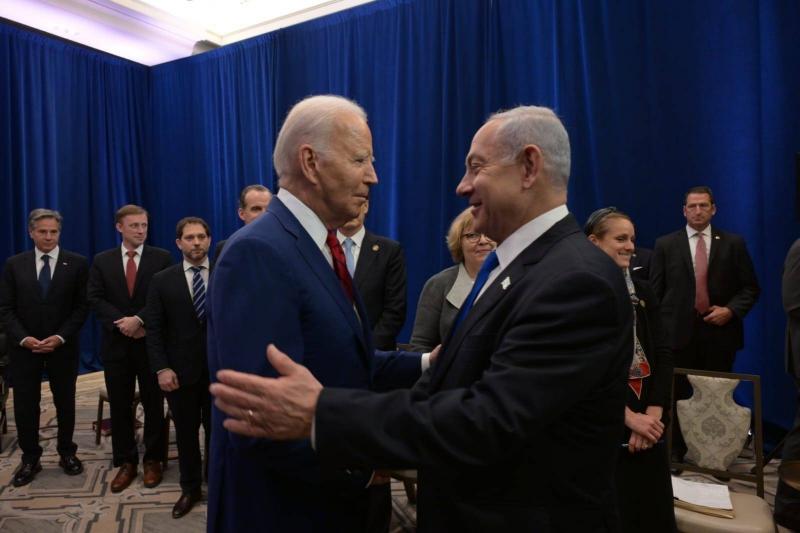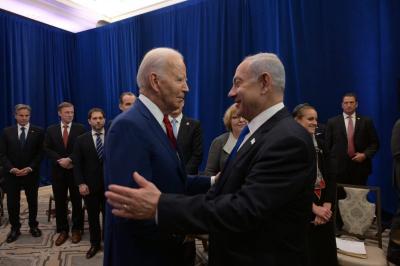U.S. President Joe Biden told Prime Minister Benjamin Netanyahu on Thursday that continued American support for the war in Gaza hinges on Israeli actions to protect civilians and urged him to reach a "prompt ceasefire." During a phone call, Biden called for the "announcement and implementation of a series of specific, concrete, and measurable steps to address the harm to civilians, the humanitarian suffering, and the safety of relief workers," according to a White House statement. Biden made it clear that U.S. policy regarding Gaza would be dictated by Israel's immediate actions on these steps.
The U.S. president informed Netanyahu that airstrikes on relief workers and the humanitarian situation in Gaza, where the United Nations warns of famine, are "unacceptable." The statement added that Biden "emphasized that an immediate ceasefire is essential for stabilizing the situation, improving the humanitarian condition, and protecting innocent civilians," urging the Prime Minister to empower his negotiators to reach an agreement without delay to release captives.
This phone call came just days after the killing of seven relief workers in Gaza due to an Israeli strike, complicating the increasingly strained relationship between the two leaders. The White House announced on Thursday that Biden's tougher tone during the call reflects "growing frustration" over Israel's lack of response to calls for civilian protection. National Security Council spokesman John Kirby told reporters when asked if the call reflected Biden's frustration with Netanyahu's response to U.S. requests, "Yes, there is increasing frustration." Kirby also stated that if Israel does not change its approach to the Gaza war, the United States will alter its policy towards Israel.
Kirby urged Israel to facilitate a "huge" increase in aid to Gaza over "the hours and days ahead." He said, "What we are looking to see and hope to see here in the coming hours and days is a massive increase in humanitarian aid access, the opening of additional crossings, and a reduction in violence against civilians and relief workers."




